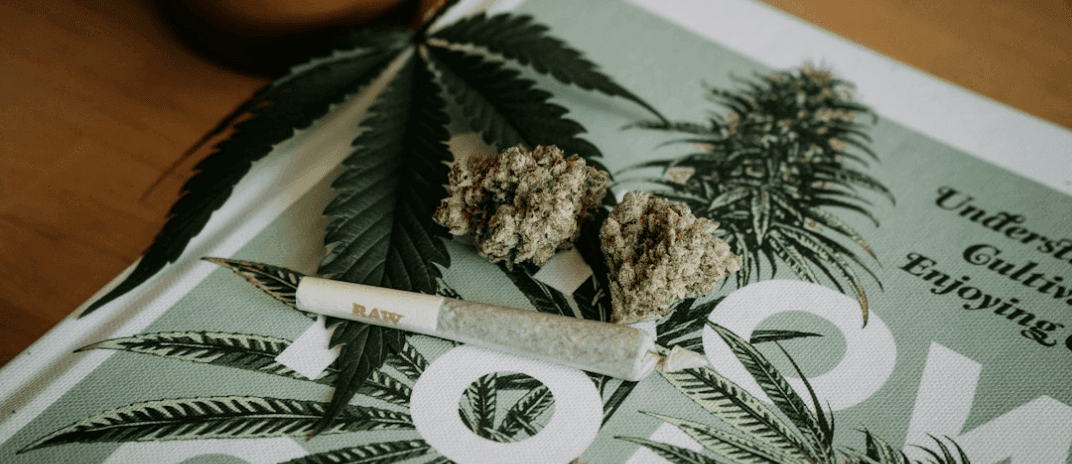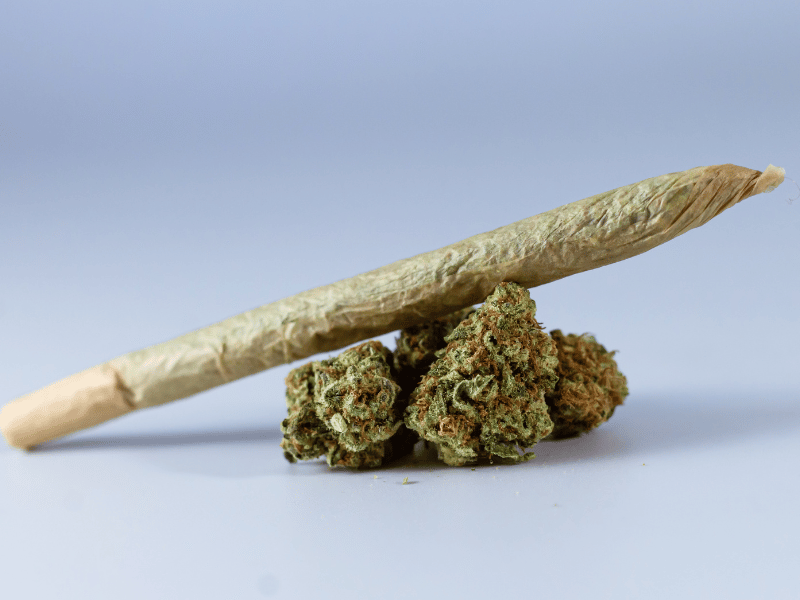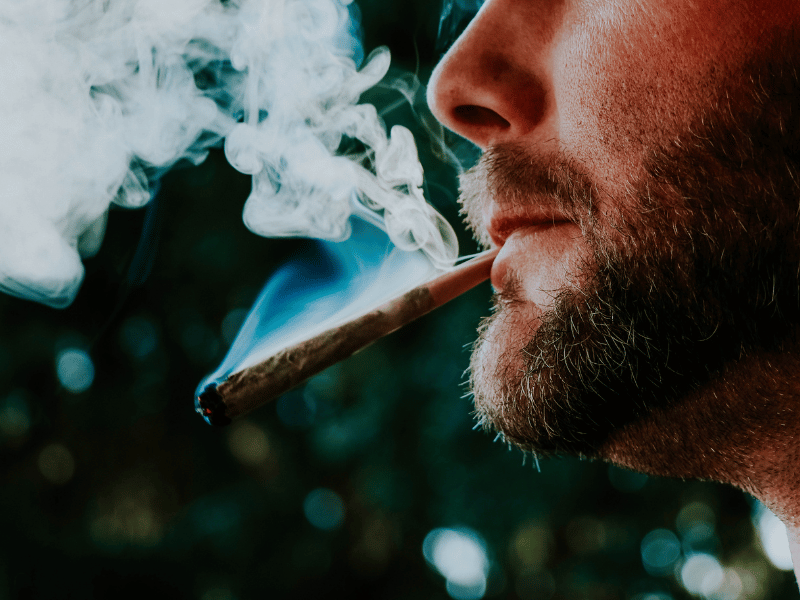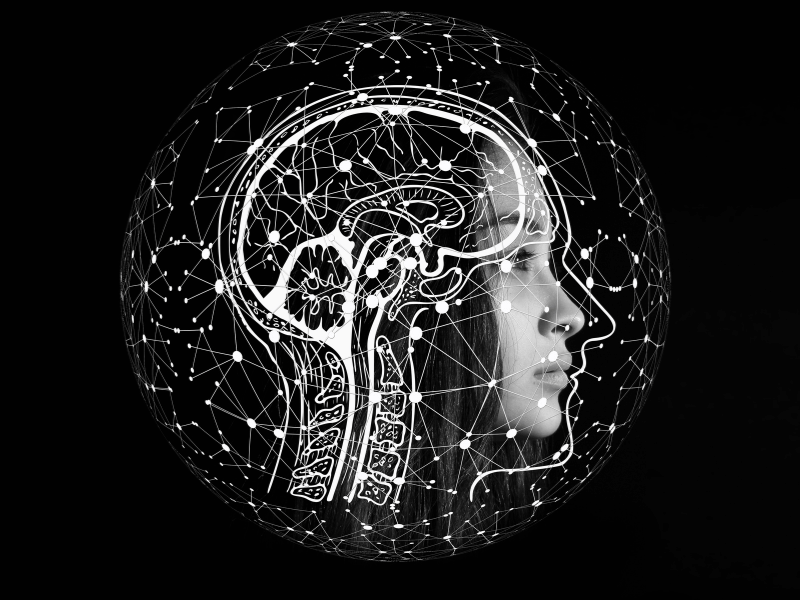


Do you ever wonder what happens when you sleep high? If you’re wondering about this question, this article will explore the altitude effects of sleeping while under the influence of marijuana.
You may already know that marijuana can induce relaxation and sleepiness, making it a popular natural sleep aid. However, it’s important to understand the potential risks and drawbacks.
From impaired sleep quality to disruption of REM sleep, there are factors to consider before incorporating marijuana into your bedtime routine.

Marijuana, commonly used interchangeably with Cannabis, is a part of the Cannabis Sativa plant that carries a substantial amount of tetrahydrocannabinol (THC) [1].
When it comes to the effects of different cannabis strains on sleep, the key factor to consider is their potency. Cannabis strains vary in their levels of THC and CBD, which are the main compounds responsible for the high and therapeutic effects.
Indica strains, known for their relaxing properties, are often recommended for sleep. These strains can help you unwind and prepare for a restful night. On the other hand, sativa strains are believed to be more energizing and may not be as effective for sleep.

When you smoke weed, cannabinoids in the marijuana plant bind to cannabinoid receptors in your brain. This binding increases the levels of adenosine, a neurotransmitter that promotes sleepiness, while also repressing the arousal system [2].
THC, one of the main cannabinoids in cannabis, is believed to be responsible for the sedative effects of weed. However, it’s worth noting that THC can also stimulate some individuals. Additionally, CBD, another cannabinoid, can promote alertness in lower doses and sleepiness in higher doses. The combination of THC and CBD can make it easier for some people to fall asleep.
These mechanisms contribute to the sleep-inducing effects of cannabis when you use it to fall asleep.
Using cannabis for sleep can have both benefits and risks. While it may help improve sleep quality for some individuals, there are potential risks and side effects to consider.
Relying on cannabis as a sleep aid may result in dependence, making it challenging to get restful sleep without it. Additionally, there’s a possibility of experiencing symptoms of insomnia when not using cannabis products.
It’s crucial to be aware of the risks and side effects associated with using cannabis for sleep. Before deciding on using it for sleep, consult with a medical professional.
While using weed, the effects on your REM sleep may vary. Cannabis smokers tend to spend more time in the previous stage of sleep, resulting in less REM sleep. This reduction in REM sleep can hinder the body’s ability to rest and recover.
On the other hand, cannabis may improve sleep in individuals with REM sleep behavior disorder. Different strains of cannabis have different effects on sleep, with strains high in THC increasing time spent in deep sleep stages and reducing the length of the REM sleep stage.
However, it’s important to note that the impact of weed on REM sleep is still not well-studied, and further research is needed to determine the exact effects.
Some research has found that the use of cannabis may be helpful in treating various health conditions such as:
Cannabis has been used for a long time for pain management. Based on a 2016 survey that was conducted in Colorado, United States, over 65% of respondents reported using cannabis to relieve pain and found that it was helpful. Out of these respondents, 80% reported that it was helpful compared to over-the-counter pain medications [3].
A few other studies have also found that cannabis can be useful in treating neuropathic pain— a pain that is caused by nerve damage [4].
Anxiety disorders are one of the most common psychiatric conditions, with up to a lifetime prevalence of 30%. In Australia, anxiety is the second most common condition to be prescribed medical marijuana [5]. According to a study that was conducted by CU Bolder, all of the group participants reported feeling less tense and decreased anxiety [6].
Research also shows that pharmaceutical-grade CBD can be effective in treating epilepsy, more specifically, rare and severe forms of epilepsy known as Dravet syndrome and Lennox-Gastaut syndrome [7].
Some evidences prove cannabis to be beneficial for short-term sleep problems, including insomnia symptoms, trouble sleeping, and sleep disturbances. Sleep psychologist, Dr. Deirdre Conroy, from the University of Michigan Health affirms that marijuana can help people fall asleep faster and improve sleep quality, especially in the first part of the night [8].
However, using marijuana continuously may hurt health in the long term. According to a new survey by the American Academy of Sleep Medicine (AASM), it has been reported that over half of Americans who use marijuana have lost sleep over it [9]. Another study that involved adults aged 20 to 59 years old had results that indicated the use of cannabis is associated with increased difficulty falling asleep and excessive daytime sleepiness [10].
Factors that can affect the quality of your sleep when using marijuana include the potential side effects of the drug. Here are some potential side effects that you should be aware of:
It’s important to pace yourself and avoid smoking certain strains past mid-afternoon.

The use of cannabis affects brain development and brain function. Within 24 hours of using it, you can witness an impact on your thinking, attention, memory, coordination, movement, and time perception.
When you sleep high, your brain activity will slow, and you may find yourself being able to fall asleep faster and experiencing increased deep sleep [11].
Although marijuana can help some individuals fall asleep faster, it does come with certain risks and side effects, which are not great in the long term. Thankfully, it is not the only option.
If you are looking to avoid the side effects and try out other natural alternatives to fall asleep, here are some effective ones to help you drift off faster and sleep better:
While marijuana can help with sleep, there are also many risks. It may be a tempting solution. However, it’s best to always opt for more natural remedies or seek professional help.
Consider using sleep apps like ShutEye® for a start to help you. ShutEye® offers features to help you keep track of your sleep cycle and a smart alarm clock. You may also find various sleep aids within the app. Try it today for FREE!
American Academy of Sleep Medicine (2023) Marijuana use leads to lost sleep for half of Americans [online]. Available at: https://aasm.org/marijuana-use-leads-to-lost-sleep-for-half-of-americans/
American Academy of Sleep Medicine (2014) Marijuana use is associated with impaired sleep quality [online]. Available at: https://aasm.org/marijuana-use-is-associated-with-impaired-sleep-quality/
Bachhuber, M., Arnsten, J., and Wurm, G. (2019) Use of Cannabis to Relieve Pain and Promote Sleep by Customers at an Adult Use Dispensary. Journal of Psychoactive Drugs, 51(5), 400 [online]. Available at: https://doi.org/10.1080/02791072.2019.1626953
Berger, M., Amminger, G. P. and McGregor, I. S. (2022) Medicinal cannabis for the treatment of anxiety disorders. Australian Journal of General Practice, 51(8) [online]. Available at: https://www1.racgp.org.au/ajgp/2022/august/medicinal-cannabis
Centers for Disease Control and Prevention (2024) Cannabis and Chronic Pain [online]. Available at: https://www.cdc.gov/cannabis/health-effects/chronic-pain.html
Kesner, A. J., and Lovinger, D. M. (2020) Cannabinoids, Endocannabinoids and Sleep. Frontiers in Molecular Neuroscience, 13, 125 [online]. Available at: https://doi.org/10.3389/fnmol.2020.00125
Marshall, L. (2024) CBD shown to ease anxiety without the risks that can come with THC [online]. Available at: https://www.colorado.edu/today/2024/02/27/cbd-shown-ease-anxiety-without-risks-can-come-thc
Michigan Medicine (2024) Does marijuana actually help with sleep problems? [online]. Available at: https://medicine.umich.edu/dept/psychiatry/news/archive/202404/does-marijuana-actually-help-sleep-problems
National Center for Complementary and Integrative Health (2019) Cannabis (Marijuana) and Cannabinoids: What You Need To Know [online]. Available at: https://www.nccih.nih.gov/health/cannabis-marijuana-and-cannabinoids-what-you-need-to-know
The Hope House (2024) What Happens When You Sleep High? Marijuana and Sleep [online]. Available at: https://www.thehopehouse.com/marijuana-addiction/related/what-happens-when-you-sleep-high/
von Wrede R, Helmstaedter C, Surges R (2021) Cannabidiol in the Treatment of Epilepsy. Clin Drug Investig, 41(3):211-220. [online]. Available at: https://pubmed.ncbi.nlm.nih.gov/33559102/